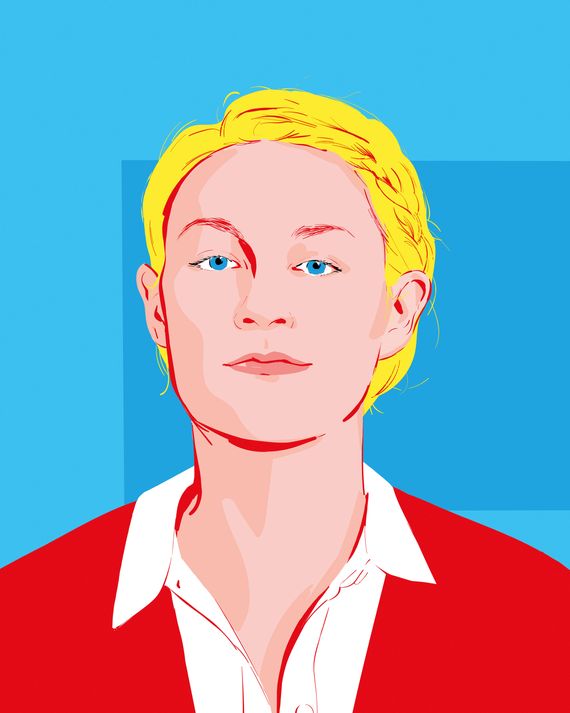
Is This a Room, by Tina Satter and her company, Half Straddle, has wended its way from the performance-art space the Kitchen to Off Broadway’s Vineyard Theatre and now will open at the Lyceum on Broadway in September. With a script drawn entirely from the FBI recording of Reality Winner’s arrest at her house in Georgia, the show balances on the extremely downtown, never-before-on-Broadway star Emily Davis as Reality. We spoke in mid-August.
When did you hear that you’re going to Broadway?
About a month ago.
A month ago? That’s all?
Yeah. We’re doing auditions next week and then we’ll start, I think, in late September. Which is insane. You’re laughing because maybe you think that’s really soon! To me, that’s like, I guess it’s how it works? And then — I’m terrified.
So did reading this feel like sitting down with a play? Or is there something about the verbatim text that was different?
The goal is always consistency about what you want the audience to see, which is different from what you want them to feel. Tina did this very wild thing, which was put in a row of audience members across the front. And that’s really challenging, because you’re trying to still have control over this stage picture, even though there’s this wild card up there every night. And it’s not like we got offstage the first night and were like [mimes a high five] “Let’s go get daiquiris,” you know? It was like, we still have a lot of fucking work to do! I went to visit a visual artist friend of mine who’s doing claymation, and his process was a little like what making this show feels like.
How do you go about playing a real person? Is it impersonation or channeling or creating something new?
I could never think of this as an impersonation. That’s so not interesting to me. Crucially, when we first started working on it, this story was coming to me through this filter, which was Tina. We read through it a couple of times, and it was only after Billie, Reality’s mom, reached out to Tina that we started to connect that this was [still] an ongoing thing. [But] I could imagine very easily what she sounded like because half of my family’s from South Texas. And then I heard Billie speak, and she sounded like my mom. The project was about us trying to figure out how to make that very dry text sing.
I wrote to Reality — I honestly don’t even remember what I wrote. But she wrote back to me immediately: a huge, long, sprawling letter within an hour of my sending it. So she’s right there, and she’s also still this vague poof of smoke that we’re constructing our impulses around.
Are you still in touch with her?
Tina has been, on a Zoom call. Last summer, she wasn’t in a place where she could get email anymore, which was how we had been able to write back and forth. Letters that I sent to her were returned to me, and as I understand it, that was happening a lot. Right before the pandemic, we were in Michigan with Billie and Brittany, Reality’s big sister, who continues to be the most intimidating figure.
Intimidating?
She’s a big sister! She came to the Kitchen and walked up to me with, like, a cheap wineglass in her hand: “You did a good job.” And again, it wasn’t a “good job” of impersonating her sister, but it was “you did a good job of making something that I feel okay watching during this time.” I slept a little better.
Is there anything we’re seeing onstage in your performance that connects back to that family?
The pets.
Really?
Yeah. I would rather not say what Reality wrote to me about, but she did express concern over the animals. And her mom also mentioned that that was, like, the most important thing to her.
Is this all a method you learned? You trained at NYU, right?
I did. [Scrunches up her face.] I did study acting, but I studied neurolinguistics‚ language-acquisition rites, for the second part of my time at NYU. I loved watching what was happening to the brain when it would hear unexpected language — what happens to people’s cognition when they hear or comprehend something that’s out of the norm. We metabolize different, like, different, what’s it called … [Long pause.] For the record, I wasn’t a good student.


